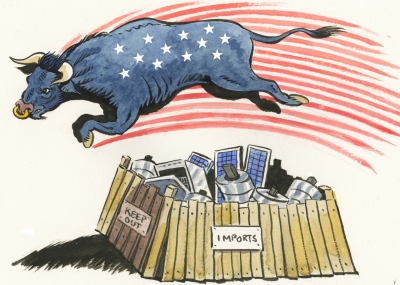Mitsubishi Corporation of Japan has decided to terminate its metal trading business in China after suffering losses of over 90 million US dollars due to copper trade fraud!

A staff of Mitsubishi Corporation RtM China Ltd. ("RtM China")confirmed that a Chinese employee of the company surnamed Gong enriched himself and caused the company to lose over $90 million due to unauthorized transactions.
Mitsubishi Corporation's quarterly report released on November 1st showed that the company's mineral resources business suffered "China trading business losses" of 13.8 billion yen (approximately US$91.52 million) in the first six months as of September 30th, 2024. Kyodo News stated that this loss was caused by the employee surnamed Gong. He had been fired by the company due to serious dereliction of duty and the company had reported the case to the Chinese public security agency.
The losses are the latest in a series of recent cases of alleged misconduct at large commodities trading firms. In October, Trafigura said it faced a $1.1 billion loss in Mongolia due to alleged misconduct by its employees.
Mitsubishi fired Gong Huayong, a Shanghai-based copper trader at its Chinese subsidiary, after it was discovered he had made unauthorized trades with local companies, including some with ties to him, people familiar with the matter said. The total losses were well over $90 million.
This is consistent with Mitsubishi disclosing a 13.8 billion yen ($92.2 million) loss in its most recent quarterly results, citing a "loss from its China trading business" without further explanation. People familiar with the matter said the losses were mainly caused by Gong's behavior.
A Mitsubishi spokesman confirmed that Gong had been fired from the Chinese unit and that a criminal complaint had been filed.
Mitsubishi began investigating Gong's dealings earlier this year after some customers of its copper business failed to settle transactions or defaulted on payments when they were due, people familiar with the matter said. The Japanese company found that Gong, a former trading manager at Mitsubishi Corporation RtM China Ltd., had pushed Mitsubishi to allow certain local companies to defer payments for copper concentrates and refined copper.
In some cases, Mitsubishi did not approve these companies as counterparties; these companies had personal relationships with Gong. Some say Gong left China before the company fully discovered his actions and never returned. At least one of Mitsubishi's counterparties, which helped uncover the alleged fraud following an internal investigation, has reported the matter to Chinese police.
On January 13th, Bloomberg reported the latest news: Mitsubishi Metal decided to terminate its metal resource trading business in China due to the above-mentioned copper trade fraud case. The company will stop buying and selling refined metals and mineral resources in China’s spot market, and will not then provide relevant services to local enterprises. This news caused an uproar in the industry, and also allowed us to see the huge risks and challenges faced by global trading giants in a complex market environment.

According to informed sources, on January 9th, the General Manager of RtM China sent a document to a client stating that due to adjustments in the company's business strategy and changes in the market environment, the above decision was made and the transaction with the client was terminated as a result. However, the Chinese import and export business of other companies under Mitsubishi Corporation Group as trading entities will continue to be promoted by other companies of the group, and the import and export trade in US dollars will continue, except for the cessation of RMB trade business.
Mitsubishi Corporation commented in an email that the adjustment was due to "changes in market conditions" and copper trading fraud, and the company estimated that the move could cost "hundreds of millions of yen". This incident not only had a direct impact on Mitsubishi Corporation's finances, but also prompted the company to re-examine its overall layout in the Chinese market. Although this exit involves the metal trading business in the spot market, Mitsubishi Corporation still plans to continue to support the import and export needs of Chinese customers through other departments, showing its thoughtful strategic adjustment.
This is not the first trading scandal that a general trading company has encountered. Most famously, Sumitomo lost more than $2 billion in the 1990s on star trader Yasuo Hamanaka's copper trades, which the company said were unauthorized. Hamanaka admitted forging documents to conduct unauthorized copper transactions on behalf of the company and was sentenced to eight years in prison.
Mitsubishi shut down its oil unit in Singapore in 2019 after a Chinese trader lost more than $300 million. (The trader said through his lawyer that he was acting on his manager's orders and that the losses were caused by "premature" settlement of derivatives positions.)
The commodity trading industry has always been known for its high risks and high returns. Each transaction may involve billions or even tens of billions of dollars in capital. However, this also provides opportunities for individual traders to take advantage of loopholes and seek personal gain. How to balance market expansion and risk control is an important issue that every commodity trading company needs to face.
Mitsubishi Corporation's scandal reminds the entire industry: while pursuing profits, strengthening internal supervision and risk control mechanisms is the cornerstone of a company's steady development.















